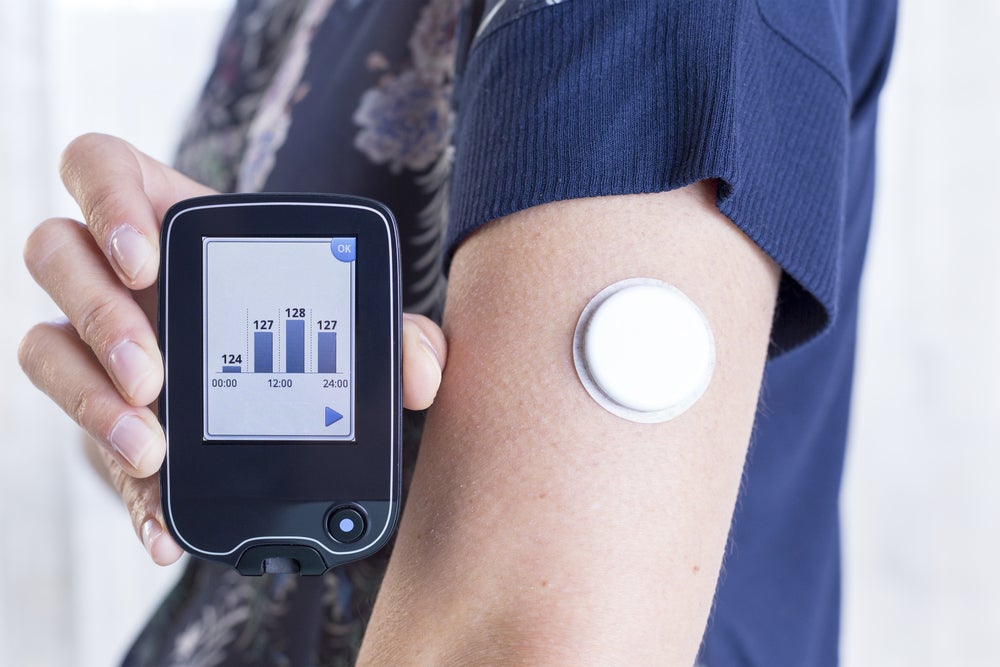
Wearable continuous glucose monitors could help elderly people with memory problems better manage diabetes, according to a study from the University of East Anglia.
A wearable glucose monitor consists of a small sensor that attaches to the skin and a receiver displaying the wearer’s glucose levels when held near the sensor. This removes the need for finger-prick tests. Currently, continuous glucose monitors are available on the NHS but only for those who meet a certain criteria.
However, the new research, carried out in collaboration with Norfolk and Norwich University Hospital and published in BMJ Open, suggests that older people with memory problems could particularly benefit from having access to the technology.
People with memory problems, such as dementia and Alzheimer’s, may find it difficult to remember to regularly check their blood sugar levels throughout the day. Those who do not have wearable glucose monitors must carry out a finger prick test up to ten times a day.
The Joint British Diabetes Society for Inpatient Care recently published guidelines for inpatient care of frail older adults with diabetes and highlighted the importance of regular glucose
monitoring for this group.
Lead researcher Dr Katharina Mattishent, from UEA’s Norwich Medical School, said:
How well do you really know your competitors?
Access the most comprehensive Company Profiles on the market, powered by GlobalData. Save hours of research. Gain competitive edge.

Thank you!
Your download email will arrive shortly
Not ready to buy yet? Download a free sample
We are confident about the unique quality of our Company Profiles. However, we want you to make the most beneficial decision for your business, so we offer a free sample that you can download by submitting the below form
By GlobalData“It is estimated that up to 20% of older people with dementia also have coexisting diabetes. It’s a big problem because they may be more prone to low blood sugars (hypoglycaemia) from their medication, but not recognising the warning signs – or what to do if it happens.
“This is the first project to see if new wearable glucose monitoring technology could be useful for older people with diabetes and memory problems.
Continuous glucose monitor: Bluetooth is better
To test whether continuous glucose monitors could help older people with memory problems manage their diabetes, the research team trialled the Freestyle Libre flash glucose monitoring system with 12 participants who were experiencing memory problems, or who had been diagnosed with dementia.
The devices captured data across 14 days and the research team interviewed the participants and carers to understand their experiences of using the device.
Professor Yoon Loke, also from UEA’s Norwich Medical School, said: “Our study found that older people and their carers overwhelmingly found the device to be acceptable to use and reassuring to be able to check sugar levels more easily.
“It didn’t interfere with their day-to-day activities and they were not aware of the device while sleeping at night.
“Carers spoke favourably about the simplicity of the device. And all of the participants were positive about recommending it to others.
However, there were some issues with using the devices. Loke explains:
“One problem we found though was that data recorded was not always complete because it relied on participants or their carers ‘swiping’ three scans a day. Real-time devices that automatically record and send the data through Bluetooth may therefore be even more beneficial for people with memory problems.”
Dr James Pickett, Head of Research at Alzheimer’s Society, said:
“We’re delighted to see our funded research demonstrating possible benefits of wearable technology for some people with diabetes. Many people with dementia have other health conditions, and managing them all together can be challenging. It’s exciting to see that technology may be part of the answer. The next step is to test the impact in a larger group of people.
Read More: Wearable medical devices: Ungluing the fact from the fiction.






